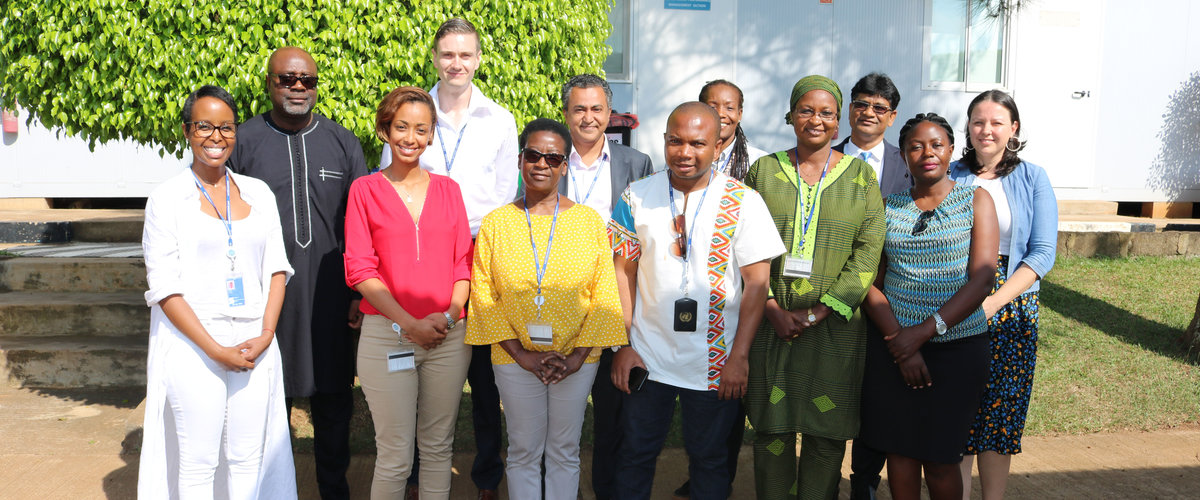299th Civilian Pre-Deployment Training Course Hosted at the RSCE
ENTEBBE – During the week of 13 to 17 January 2020, the Civilian Pre-Deployment Training (CPT) course was hosted once again in Entebbe. This recurring training event was held for the 64th time at the RSCE and for the 299th time within the UN Secretariat overall. The CPT course is one of the primary tools used by peacekeeping operations to improve preparedness, effectiveness and productivity of civilian peacekeepers who will be deployed to field missions.
The blended CPT training incorporating five pre-requisite online courses and a four-day in person component aids to generate competent, institutionally knowledgeable, and ethically aware civilian peacekeepers capable of serving in dangerous and complex environments. It develops a better understanding and orientation of working in the UN and it prepares new civilian staff members to undertake assigned responsibilities with confidence.
The course is mandatory for staff who will be deployed to a field mission for the first time as an international civilian staff member as well as civilians who have not served as international civilian staff within the last three years.
Some of the subjects focused on during the course are preventive health-related issues and possible health risks, basic first aid, personal safety and security (which actions/reflexes should one undertake to protect his/her colleagues and themselves), stress management as well as simulation exercises in crisis management and convoy & hostage.
The CPT equally helps to adapt swiftly to complex mission life by improving the performance and capabilities of the staff. This is done by enhancing their ability to perform efficiently while always maintaining to act righteously.
In other words, the course makes sure that the staff understands and is prepared for what to expect upon arrival in the mission. A destabilising shock-effect once in the field should be avoided at all means. But how successful is the course in achieving this? CPT Team Leader Sushil K Sarkar has the answer.
“There are two ways in which we measure the effect and success of our efforts to facilitate the CPT course to newly recruited civilian staff members”, Mr Sarkar states.
He continues to explain: “At the end of every CPT programme, we ask our course participants to fill in an ‘End of Course Evaluation’. I am pleased to state that my team always gets great feedback: the satisfaction rates vary usually between 92 and 95%.”
“On the other hand, the CPT team recently has conducted a level 3 evaluation. The main objective of this evaluation was to review the impact of participation with the CPT on integration into the respective missions. We gathered a lot of data from former CPT course attendees as well as their supervisors via an online survey, mission visits and even focus group discussions as well as face-to-face interviews. Also through this feedback, we received predominantly positive remarks from both the attendees as the managers in the field when asked about the newly acquired staff members’ capacities”, Mr Sarkar concludes.
On the last day of the course programme, chief RSCE Mr Paulin Djomo had the pleasure to address the trainees before awarding them their graduation certificates. Having visited many hardship duty stations himself over the years, he advised the graduates on several in-the-field topics: how to deal with dangerous places and situations (war zones, active minefields); why one shouldn’t have their family members stay with them in non-family duty stations; how to deal with loneliness and possible traumatic experiences; etc. These subjects are all not to be underestimated once one takes up an assignment in a peacekeeping or political mission around the world.
The 300th CPT course will be organised at the end of January, in Entebbe.
 UN
UN United Nations Peacekeeping
United Nations Peacekeeping


